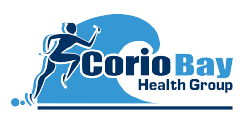What is myotherapy and how can it help you?
Myotherapy is one of the multi-skilled physical therapies within the Allied Health Profession.
Myotherapy is a manual therapy which focuses primarily on the assessment and management of myofascial pain syndromes and other musculoskeletal conditions. This can be achieved by the use of manual therapy, myofacial dry needling, electrical stimulation, pain management and prescriptive exercises.
The term myofascial comes from Myo – pertaining to muscle and Fascial –pertaining to fascia which is the connective tissue that interlaces with the muscle fibres and also forms a sheath of connective tissue encompassing a muscle.
Myotherapy is applied in the preventative, corrective and rehabilitative phases of therapy to restore and maintain the normal integrity of the soft tissue structures (muscles, tendons, ligaments and fascia) of the human body.
Myotherapists require thorough and comprehensive knowledge in the clinical sciences, combined with an extensive repertoire of sophisticated manual skills, which remain at the very heart of myotherapy.
These attributes must also be supported with communication and management skills, an appreciation of legal and ethical issues as well as an understanding of potential behaviour and psychological issues.
A myotherapist can help you with:
- assessing and managing myofascial pain, injury and dysfunction affecting movement and mobility.
- deactivation of trigger points in muscles. Trigger points are often created when a muscle is damaged via sports, accidents, occupations and disease. Trigger points can be painful and refer pain to other areas of the body.
- muscle tension caused by excess emotional and physical stresses. Muscle tension can cause pain and affect mobility. Myotherapy can aid recovery and decrease muscle pain.
